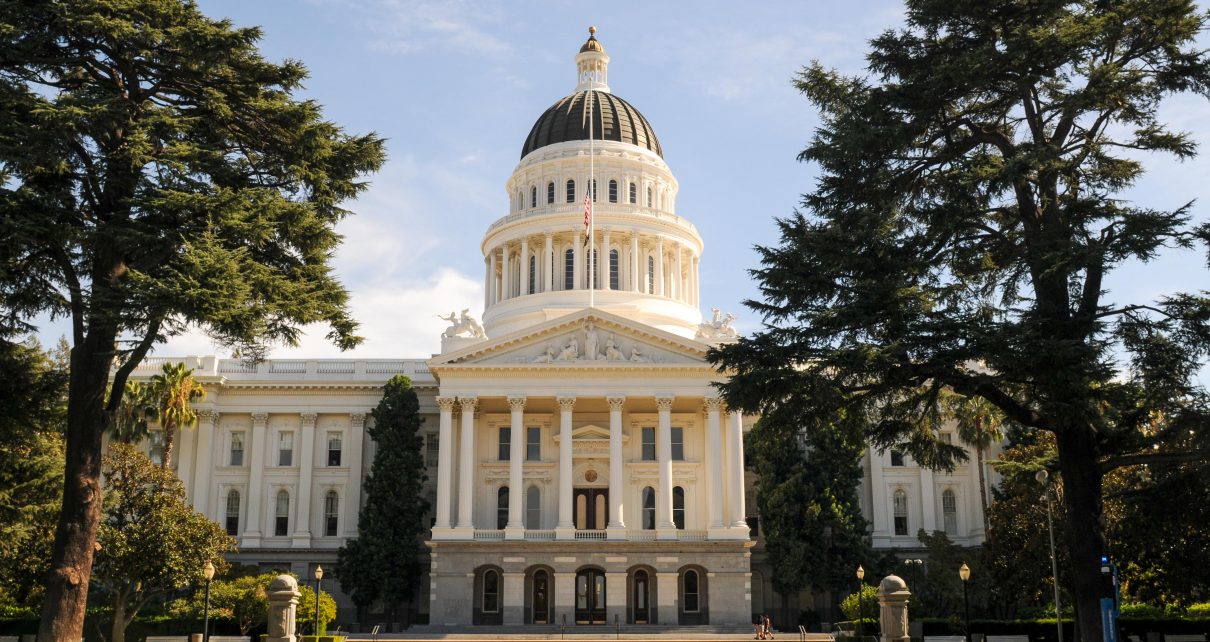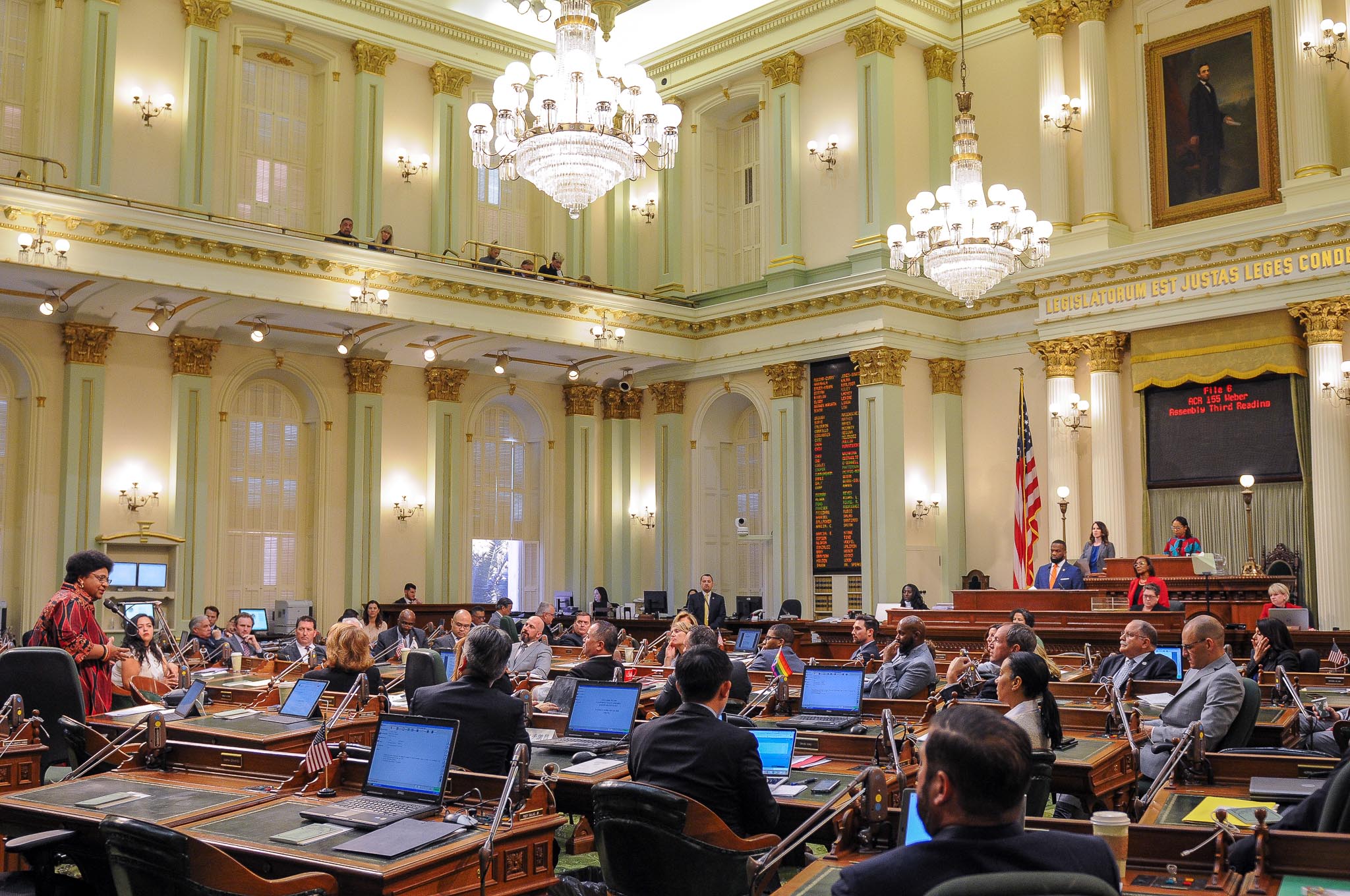
California State Capitol. (Photo: Kevin Sanders for California Globe)
What Lobbyists Should Know about Drafting Bills and Amendments
Skilled lawyers should be able to craft bill and amendment language themselves
By Chris Micheli, October 28, 2023 8:14 am
Lobbyists who work in the legislative branch of state government should be aware of the process of drafting bills and amendments. There is an art to drafting bills that comes easily for some, but is difficult for others. The critical factor is whether the bill’s language is clear enough to accomplish the intent of the bill’s author and sponsor and also whether the bill language can be understood by third parties that were not privy to all of the legislative discussions involving the bill language.
California legislative rules require all bills and amendments to be “in Legislative Counsel form” prior to the bill or amendment being processed by either the Senate Desk or the Assembly Desk. As such, regardless of whether another party does the initial drafting of a bill or amendment, attorneys with the Office of the Legislative Counsel ultimately will do the formal drafting and may tweak some language that has previously been written in order to keep the proposed statutory language consistent with other code sections. The Legislative Counsel attorneys also suggest where to place a new law in the Codes.
There are numerous California Government Code Sections that are relevant to bill and amendment drafting, including those provisions related to the Legislative Counsel, Enactment of Statutes, and Operation of Statutes. The Office of the Legislative Counsel is keenly aware of the types of measures, bills, “chaptering out” amendments, effective dates, etc., as well as the general rules of statutory interpretation to assist them in their drafting duties.
On occasion, however, a legislator may direct the Legislative Counsel Deputy to not make any changes to the bill language because it was carefully crafted to address the desires of interested parties, such as when a compromise on bill language was achieved. As a result, legislators and their staff often work closely with a Deputy on their desired bill language throughout the legislative process. On some drafting requests, the legislator or sponsor knows exactly the bill or amendment language they desire.
In other instances, the drafting request to the Legislative Counsel Deputy may be very broad, such as to “draft a bill that does ___.” Thereafter, the Deputy drafts a bill from scratch. In either instance, with a general request or a specific one, the attorneys in the Office of the Legislative Counsel utilize rules of statutory construction and other guidelines for drafting bills and amendments to those bills.
The initial question in drafting a new bill is whether this bill is proposing a new statute or is amending or repealing an existing statute. For a bill creating a new statute, an initial issue is what code will the bill be in? There are 29 codes comprising California statutes. The next question is what section of the code should this bill be in? There are over 155,000 statutes and Legislative Counsel has to determine what section of the law to create or amend.
Although the Legislative Counsel ultimately drafts the bill language (on average, over 8,000 requests per session) and amendments to those bills (on average, over 10,000 requests per session), skilled lawyers should be able to craft bill and amendment language themselves. It is a very valuable skill to possess. Moreover, it provides keen insight into interpreting statutes after an individual has experience writing statutory language. Most start with “plain English,” although there certainly are key words and phrases that Legislative Counsel prefers to utilize.
In regards to amendments, the questions to ask might include: What should be changed from the existing bill language? What is the intent of the amendment? How could that intent best be accomplished by modifying the bill language?
The following are examples of the bills and amendments that are drafted by the Legislative Counsel’s Office:
- Amending a section of code
- Adding a section of code
- Repealing a section of code
- Adding a chapter of code
- Adding multiple sections of code
- Uncodified statutes
- Intent language
- Urgency clauses
- Initiative statute
- Special legislation
- Bill making an appropriation
- Bill imposing a local mandate
- Concurrent resolution
- Joint resolution
- Constitutional amendment
- Amending a bill
There are many options for drafting a bill as shown above. Those persons working on legislation are assisted by the Legislative Counsel attorneys who are well educated in drafting bills and amendments.
In addition, most Capitol observers know that the Legislative Counsel and her deputies serve as the attorneys for the California Legislature. But their role is much broader than that. This article briefly describes the numerous activities that must be undertaken by the Legislative Counsel.
Under Government Code Section 10207(a), the Legislative Counsel maintains the attorney-client relationship with each Member of the Legislature with respect to communications between the member and the Legislative Counsel, except as otherwise provided by the rules of the Legislature.
As a result, all materials arising out of this relationship including, but not limited to, proposed bills and amendments, analyses, opinions, and memoranda prepared by the Legislative Counsel, are not public records, except as otherwise provided by the rules of the Legislature or when released by the member for whom the material was prepared.
In addition, pursuant to Section 10207(b)(1), the Legislative Counsel maintains the attorney-client relationship with the Governor with respect to communications between the Governor and the Legislative Counsel. Under Section 10207(b)(2), whenever the Legislative Counsel issues an opinion to the Governor analyzing the constitutionality, operation, or effect of a bill or other legislative measure that is then pending before the Legislature, or of any amendment made or proposed to be made to that bill or measure, the Legislative Counsel delivers two copies of the opinion to the first-named author of the bill or measure as promptly as feasible after delivery of the original opinion, and also delivers a copy to any other author of the bill or measure who requests a copy.
Per Section 10231, the Legislative Counsel prepares and assists in the preparation, amendment and consideration of legislative measures when requested or upon suggestion as provided. And Section 10232 requires the Legislative Counsel to advise any State agency as to the preparation of measures to be submitted to the Legislature.
As required by Section 10233, upon request, the Legislative Counsel shall aid and assist any member of the Legislature as to bills, resolutions and measures, drafting them into proper form, and furnishing to the member the fullest information upon all matters in the scope of the bureau.
In addition to serving as legal counsel to the Legislature, state law also requires services be provided to the Governor regarding legislation. These requirements are specified in Section 10235. Subdivision (a) provides that the Legislative Counsel shall give such consideration to and service concerning any bill in the Governor’s hands for rejection, approval, or other action, as the circumstances will permit and the Governor requests.
- Wildlife Management Areas - March 3, 2026
- County Revenues for Fish and Game - March 3, 2026
- Designating ‘Spot’ Bills in the California Legislature - March 2, 2026




